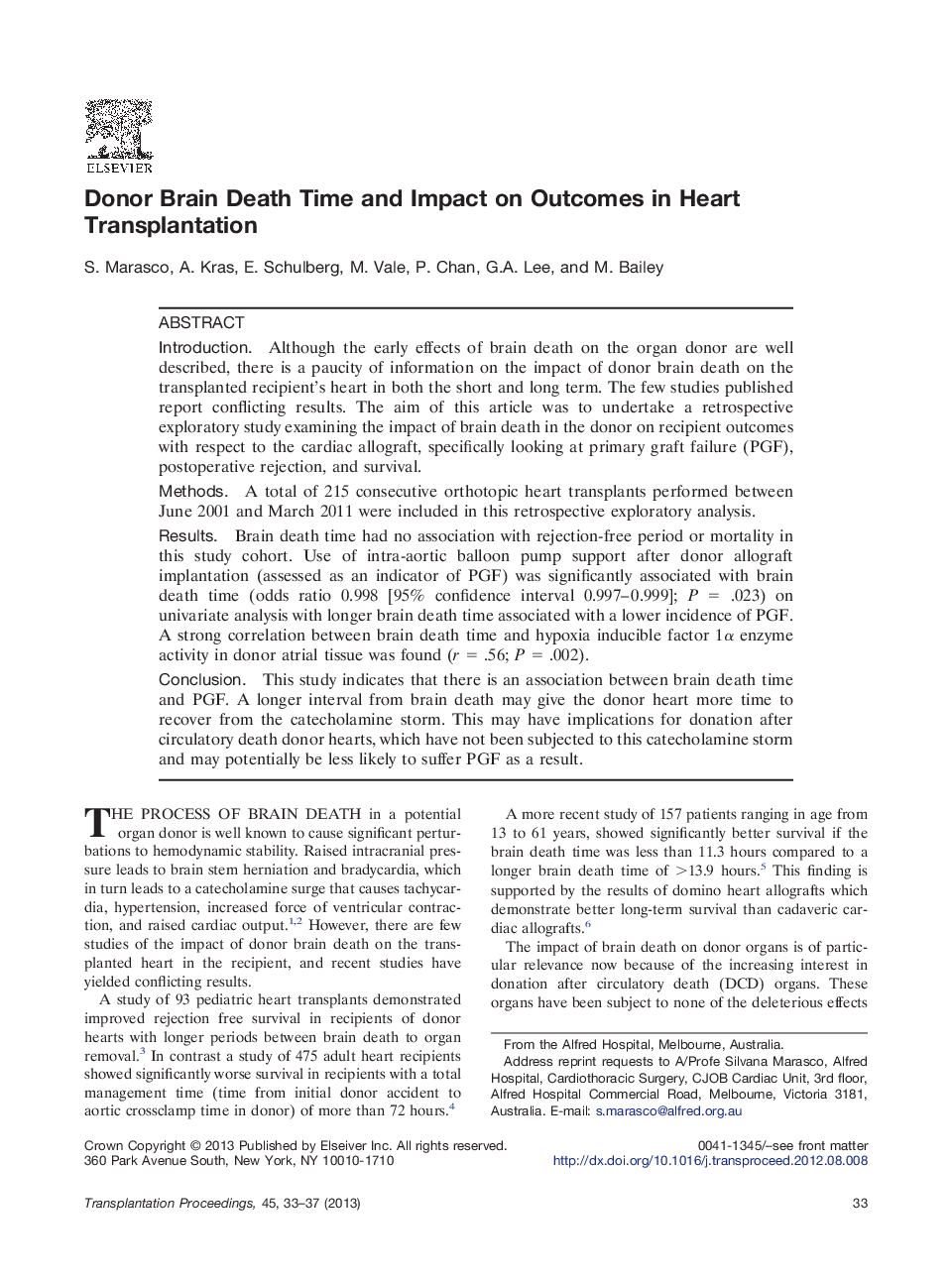| Article ID | Journal | Published Year | Pages | File Type |
|---|---|---|---|---|
| 4257059 | Transplantation Proceedings | 2013 | 5 Pages |
IntroductionAlthough the early effects of brain death on the organ donor are well described, there is a paucity of information on the impact of donor brain death on the transplanted recipient's heart in both the short and long term. The few studies published report conflicting results. The aim of this article was to undertake a retrospective exploratory study examining the impact of brain death in the donor on recipient outcomes with respect to the cardiac allograft, specifically looking at primary graft failure (PGF), postoperative rejection, and survival.MethodsA total of 215 consecutive orthotopic heart transplants performed between June 2001 and March 2011 were included in this retrospective exploratory analysis.ResultsBrain death time had no association with rejection-free period or mortality in this study cohort. Use of intra-aortic balloon pump support after donor allograft implantation (assessed as an indicator of PGF) was significantly associated with brain death time (odds ratio 0.998 [95% confidence interval 0.997–0.999]; P = .023) on univariate analysis with longer brain death time associated with a lower incidence of PGF. A strong correlation between brain death time and hypoxia inducible factor 1α enzyme activity in donor atrial tissue was found (r = .56; P = .002).ConclusionThis study indicates that there is an association between brain death time and PGF. A longer interval from brain death may give the donor heart more time to recover from the catecholamine storm. This may have implications for donation after circulatory death donor hearts, which have not been subjected to this catecholamine storm and may potentially be less likely to suffer PGF as a result.
